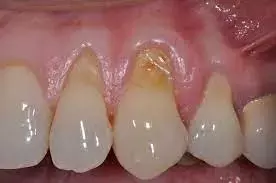- Home
- Medical news & Guidelines
- Anesthesiology
- Cardiology and CTVS
- Critical Care
- Dentistry
- Dermatology
- Diabetes and Endocrinology
- ENT
- Gastroenterology
- Medicine
- Nephrology
- Neurology
- Obstretics-Gynaecology
- Oncology
- Ophthalmology
- Orthopaedics
- Pediatrics-Neonatology
- Psychiatry
- Pulmonology
- Radiology
- Surgery
- Urology
- Laboratory Medicine
- Diet
- Nursing
- Paramedical
- Physiotherapy
- Health news
- Fact Check
- Bone Health Fact Check
- Brain Health Fact Check
- Cancer Related Fact Check
- Child Care Fact Check
- Dental and oral health fact check
- Diabetes and metabolic health fact check
- Diet and Nutrition Fact Check
- Eye and ENT Care Fact Check
- Fitness fact check
- Gut health fact check
- Heart health fact check
- Kidney health fact check
- Medical education fact check
- Men's health fact check
- Respiratory fact check
- Skin and hair care fact check
- Vaccine and Immunization fact check
- Women's health fact check
- AYUSH
- State News
- Andaman and Nicobar Islands
- Andhra Pradesh
- Arunachal Pradesh
- Assam
- Bihar
- Chandigarh
- Chattisgarh
- Dadra and Nagar Haveli
- Daman and Diu
- Delhi
- Goa
- Gujarat
- Haryana
- Himachal Pradesh
- Jammu & Kashmir
- Jharkhand
- Karnataka
- Kerala
- Ladakh
- Lakshadweep
- Madhya Pradesh
- Maharashtra
- Manipur
- Meghalaya
- Mizoram
- Nagaland
- Odisha
- Puducherry
- Punjab
- Rajasthan
- Sikkim
- Tamil Nadu
- Telangana
- Tripura
- Uttar Pradesh
- Uttrakhand
- West Bengal
- Medical Education
- Industry
Enamel matrix derivative use seems promising in implant dentistry: Study

Enamel matrix derivative use seems promising in implant dentistry, according to a recent study published in the Materials.
Enamel matrix derivative (Straumann Emdogain, Straumann USA LLC) is an extract of porcine fetal tooth material that can stimulate both soft and hard tissue growth. The material is applied to the denuded root surface and promotes healing via a connective tissue fibre attachment.
Enamel matrix derivative (EMD) has been successfully used for periodontal regeneration in intrabony defects. Recently, its use for peri-implant bone regeneration has also been hypothesized. The aim of this paper is to review preclinical and clinical studies investigating the use of Enamel matrix derivative (EMD) in correspondence with titanium implants, alone or as an adjunct to other biomaterials. Clinical trials and case series with more than five cases were included. Seven in vitro studies evaluated the effect of enamel matrix derivative (EMD), placed on titanium surfaces.
The results of the study are as follows:
- An increase in proliferation and viability of osteoblasts was observed in all but two studies.
- An increase in TGF-β1 and osteocalcin production, alkaline phosphatase activity, and angiogenesis were also reported.
- Nine animal studies investigated the use of Enamel matrix derivative (EMD) at implant placement or for bone regeneration of peri-implant bone defects, and some of them reported a significant increase in bone formation or bone-to-implant contact.
- In four of eleven clinical trials on humans, Enamel matrix derivative (EMD) was successfully used at implant placement. The other seven evaluated the use of Enamel matrix derivative (EMD) in protocols for the treatment of peri-implantitis.
Thus, the researchers concluded that the results of Enamel matrix derivative (EMD) seem promising, but further randomized clinical trials are needed to evaluate its efficacy.
Reference:
The Applications of Enamel Matrix Derivative in Implant Dentistry: A Narrative Review by Alice Alberti et al. published in the Materials
https://doi.org/10.3390/ma14113045
Dr. Shravani Dali has completed her BDS from Pravara institute of medical sciences, loni. Following which she extensively worked in the healthcare sector for 2+ years. She has been actively involved in writing blogs in field of health and wellness. Currently she is pursuing her Masters of public health-health administration from Tata institute of social sciences. She can be contacted at editorial@medicaldialogues.in.
Dr Kamal Kant Kohli-MBBS, DTCD- a chest specialist with more than 30 years of practice and a flair for writing clinical articles, Dr Kamal Kant Kohli joined Medical Dialogues as a Chief Editor of Medical News. Besides writing articles, as an editor, he proofreads and verifies all the medical content published on Medical Dialogues including those coming from journals, studies,medical conferences,guidelines etc. Email: drkohli@medicaldialogues.in. Contact no. 011-43720751


